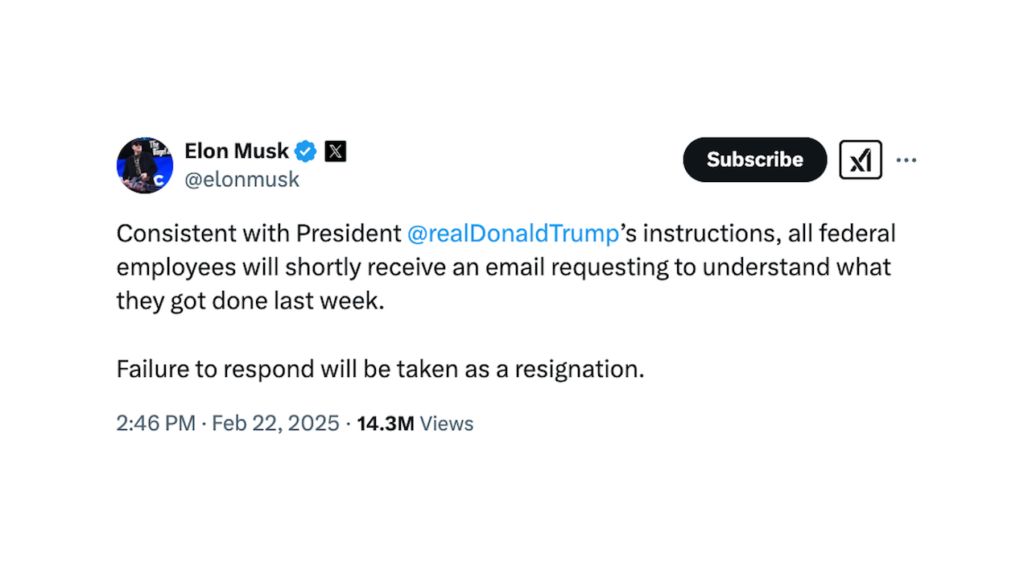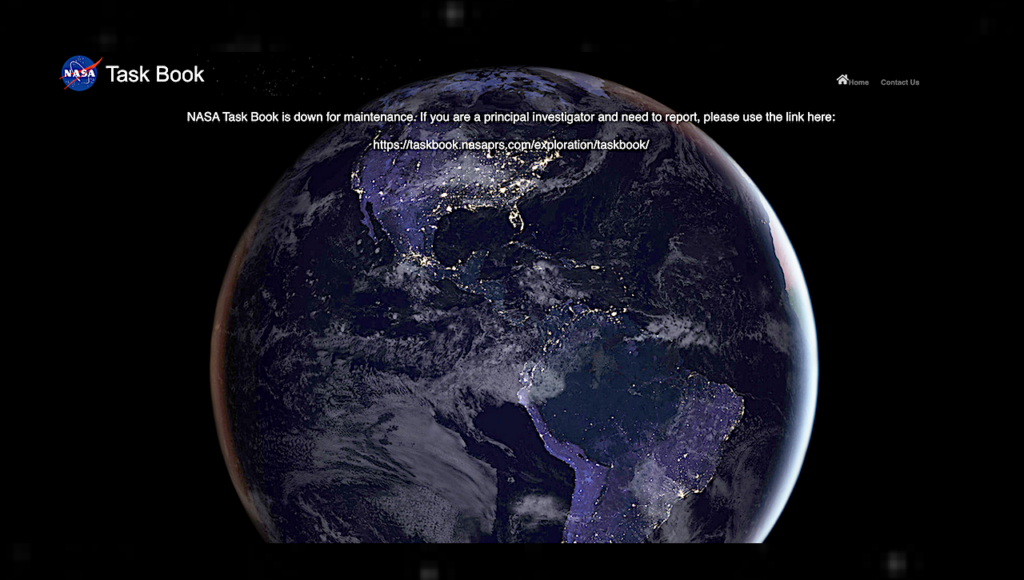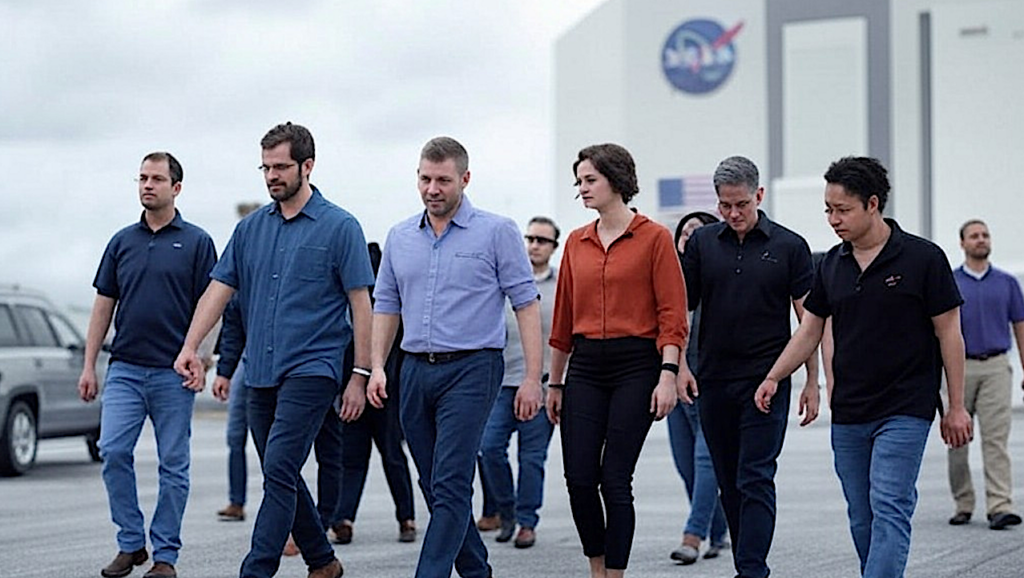TrumpSpace: Good News and Bad News For Everyone – Maybe

Big change on the horizon for NASA under Trump, Lori Garver, The Hill
“NASA Administrator Charlie Bolden’s perceived lack of enthusiastic support of the White House agenda gave an opening to the opposition. Without a willingness to take on these special interests, the administration made a Faustian bargain to secure congressional support for Earth sciences, technology and commercial crew, in exchange for support of developing a large expendable rocket (the Space Launch System or SLS) and deep space capsule (Orion) for human spaceflight. While these parochial interests still exist, a Trump White House has the opportunity to more effectively defend its own agenda. Former Speaker Newt Gingrich (R-Ga.), one the president-elect’s most senior advisers, understands space issues and is a strong believer in commercial space development as the goal of space settlement. Former Congressman Robert Walker (R-Pa.) and former National Space Council executive director Mark Albrecht share many of Gingrich’s views on the NASA bureaucracy and goals for NASA. Neither Albrecht nor Walker appear to be anxious to return to government service, but will certainly select a like-minded administrator.”
NASA Under Trump, Planetary Society
“Of the $1 trillion of “discretionary” spending, more than half is spent on national defense. Everything else the government does – scientific research, border control, education, environmental protection, federal judges, infrastructure, NASA – comes from this non-defense discretionary amount. This has also been targeted for wholesale cuts by the Trump campaign in order to help pay for their large tax cut. These cuts, along with the reinstitution of the sequester (across-the-board cuts to all federal agencies), would collapse non-defense discretionary spending to its lowest point in modern history. This budgetary scenario potentially spells doom for NASA and its ambitions. The congressional subcommittee responsible for NASA – Commerce, Justice, and Science – is also responsible for the NSF, NOAA, the FBI, the Justice Department, and Commerce Department, and the Census, among others.”
How Donald Trump’s win could change the trajectory of commercial space ventures, Geekwire
“President-elect Donald Trump’s advisers say they want to rely more on commercial ventures to pioneer the space frontier – but some of those ventures’ high-profile backers aren’t exactly in line with other parts of Trump’s policy agenda. For example, SpaceX’s billionaire CEO, Elon Musk, sees climate change as the biggest challenge facing humanity on Earth and has said a tax on carbon emissions is as necessary as garbage collection fees. In contrast, Trump has said concerns about climate change are a hoax perpetrated by the Chinese, and has vowed to “cancel” U.S. participation in the recently established Paris climate pact. (The Chinese say they’re trying to set Trump straight on that point.) Amazon billionaire Jeff Bezos, who founded Blue Origin to send passengers and payloads into space, is also the owner of The Washington Post. The Post, Amazon and Bezos were all caught up in Trump’s ire during the campaign. On the flip side of the issue, there’s at least one space billionaire who can hardly wait for Trump to get into office: Robert Bigelow, the founder of Bigelow Aerospace.”









“The Moon is a better and more important destination than Mars”
The science and resources are ‘to Mars’ and beyond and stepping up to the grand challenges. Significantly more missions and advancements will occur by avoiding gravity wells until the low cost infrastructure is in place. Consequently, significantly more challenging work to distribute.
“This has also been targeted for wholesale cuts by the Trump campaign in order to help pay for their large tax cut.”
And herein hides one of the most serious problems. You do not ‘pay’ for a tax cut. A tax ‘cut’ is a reduction in those monies collected from the population and its commerce, the entities who/which actually generate the wealth of the nation. What is being PAID for, should the people agree to such government expenditures via their voting choices, are the items for which those monies get allocated. The phrasing offered, which probably makes our nation’s founding fathers turn in their graves, suggests that such government allocations are preordained and sacrosanct.
That a group such as the Planetary Society can misrepresent…well, reality…is shameful. That they probably ‘see’ reality in such a convoluted light is troublesome. To hearken back to what the British soldiers sang (you know, those folks representing the tyranny our forebears overthrew with protests (and more) in the streets), when did the world turn upside down?
The people who fought for “no taxation without representation” soon decided they didn’t like taxation with representation any better. The Founding Fathers quickly discovered, under the Articles of Confederation, that a central government which did not have the authority to compel people to pay taxes, if necessary against their will, would soon collect none and disintegrate. The Constitution gives this power to Congress, and while we as voters have some small influence over who is in Congress very few seats are competitive in any given election, and in any case the budget has many thousands of items, some of which any of us may support and some of which we may oppose. Consequently the influence of a member of the public on any specific budget item is modest and indirect to say the least.
Logically an administration that would like to reduce taxes should first announce what programs and services will be eliminated or reduced, and then determine how much taxes can be reduced as a result. But the reality is that tax cuts are always popular and spending cuts are almost never popular, so it’s not surprising that “tax cuts” are often announced with no clear indication of the associated spending cuts or increases in borrowing, and those must be found later when the bill is actually marked up.
Indeed cutting services is never popular; and as a result, the deficit balloons under tax cutting regimes.
Bureaucracy balloons and so does huge waste in the budget also balloon. We have more admirals and generals and administrators in Washington than we have military divisions, ships or planes! Trim the huge bureaucracy and thereby the waste and the rest will fall into place. This is true of the IRS and other agencies as well. There are more supervisory positions in the IRS than there are down in the trenches workers!
silly ..
Yep. same old crap. Maybe actual reality will set in. See for instance Kansas.
—
Because for a politician it it easy to run on a campaign of cutting taxes..
It has been the inevitable trend in the past 40 years or so that tax-cutting regimes increase the federal government deficit and tax-increasing ones decrease it. Will this new administration be any different? We will see.
Pretty clear, you slash government revenues BEFORE you cut expenditures and you get massive deficits… BOTH Presidents Reagan and Bush proved this. https://uploads.disquscdn.c…
FYI an interesting article on what may happen with next year’s budget.
http://www.washingtontimes….
Paul Ryan to drive Trump’s agenda in first 100 days as transition team lags
“One quick option would be to tie a tax reform package and a huge infrastructure program into one bill — and perhaps tack on an increase in the debt limit, giving Republicans room to maneuver on taxes and spending for several years as they try to kick-start the economy.
The bill would use the tax code to offer tax breaks, depreciation and state bond authority to fund the infrastructure projects, which would aim for big-ticket items like rail improvements, new airports and bridges and highways.”
Someone needs to make the case that the path to ending the “climate change is real vs. the deniers saying it isn’t” debate, once and for all, is to learn more about what’s really happening much FASTER!!!! than our present pace of learning. We are learning too slow now; it takes 8 years to get an Earth science or even NOAA GOES type operational mission off the ground; and there are tons of great investigations that would help resolve the debate that languish for lack of budget.
Make American Earth Science Program FASTER, and BETTER, with more money, not less. Time is wasting.
Ending the debate is not going to happen. We have satellite data and shows very modest warming over 25 years. That hasn’t slowed down the chicken little brigade.
A nice image showing the rise in annual global temperature (the line), and the growth in CO2 (shown by color)
http://www.climatechangenew…
Take a look at the graph of sea ice which includes the most recent data. This year has gone horribly wrong on that graph.
I’ll say the unpopular — I hope Earth science is gutted from NASA and given to a combination of NOAA and NSF. That would be a wondrous outcome. I am not a climate denier. But the last 16 years has seen Earth science turn an agency that was once nonpolitical with bipartisan support into a political football, due to the partisan nature of climate change. If we are to actually execute on decade-long plans for exploration, no matter the destination, then we need to make sure NASA is kept a non-partisan issue. Otherwise we will keep having this uncertainty and start-over mentality every 4-8 years.
Maybe NASA leadership should just start coming up with ideas that can actually get done under 4 years.
This might be possible if we had a truly robust and affordable space transportation architecture (both to LEO and beyond LEO). The completely expendable SLS/Orion combination isn’t that at all.
You need to read some history books. NASA has always had to deal with partisan politics. It has always had bipartisan support as well. It is not as simple as you seem to think it is – or was – or can be. It is the same across the entire Federal government.
I don’t recall Apollo, Shuttle, ISS, etc. being cancelled every four/eight years.
Apollo was cancelled with flight hardware ready togo. ISS was almost cancelled in 1992 – won by one vote. Skylab was abandoned after 3 missions. It has happened before.
The reason Apollo wasn’t cancelled “every four years” *before* Apollo 11 was politics. If it weren’t for the Space Race with the Soviet Union, that program would never have had the support that it did. In fact, its budget began being cut *before* Apollo 11’s successful first manned lunar landing.
After Apollo 11, the entire Saturn/Apollo program was deemed “too expensive” and was cancelled in the way you describe. That, of course, resulted in the space shuttle program which was supposed to lower launch costs. Unfortunately, it failed terribly at this goal.
Shuttle was nearly ‘canceled’ (not approved) before it was begun until Casper Weinberger (in the Budget Office at the time!) convinced Nixon it was worth affording. It then nearly was terminated during the Carter administration until Carter himself put his hand in (at the behest of the Air Force I believe) to keep its development moving forward.
As the others say, NASA & its programs have been political from the agency’s inception…which was also a matter of politics.
And as it should be.
No, national interests first. Everyone knows that the costs of climate change are projected at 100B to 1T/yr yet no one wants liability. Energy is also a national security issue (even BP says ~50 yrs of oil left), and OPEC controls 80% of the supply.
Hence the need for renewable energy, electric cars, $Bs trade deficit reduction w/o imports+jobs! Earth science data is critical to future plans, where its not the uncertainty in the models, but the social/economical unknowns playing with the world’s fate.
Simply stated, the earth could not absorb what humans produced, best explained with a graph. Note the sharp rise in CO2 (only 150 yrs) vs the 400,000 yr trend as humans have pumped 500 billion metric tonnes of carbon upward. http://climate.nasa.gov/evi…
Efficient exploration is required first. “Everyone knew canceling CxP (shuttle derived-no chance of reuse) would be unpopular but necessary for a meaningful and sustainable program.”
The ‘debate’ is a false dichotomy: 1+1=2 is not debatable, nor is the fact that the Earth has been unable to absorb human’s concentrated emissions in such a short window of history.
NASA can deliver more, not 1 or 0 destinations, within budget, and exploration can regain its stature again, but not “if they cut one of the core purposes of the agency” …
Thank you NASA, NOAA, and EPA for your dedicated efforts.
All great reasons to study climate science. But why should that be under NASA’s roof, instead of NSF or NOAA, or EPA?
Many reasons since the study of the atmosphere and space is vital to National “A”eronautics and “S”pace hardware as well as its original charter, a core purpose of the agency.
NSF is only a funding source. It does not manage projects.
Incorrect. NSF has some projects that they manage.
An example: Solar Dynamics Observatory https://science.nasa.gov/sc…
I wonder how much of the slack ESA could pick up.
Indeed, the entire Earth observation program would be well suited for an Intelsat type of global organization to run – call it Envirosat. This would insulated it from the politics of any single nation.
It’s the second part that isn’t going to happen. And was never going to happen. The politicians who have proposed “separating” Earth science from NASA have never intended anything but undermining climate science. It has never been genuine.
Que?
Phone auto-correct from NSF.
NASA was none\ political? Are you kidding?
Funny thing about folks like Elon Musk and Jeff Bezos. The more you try to put up barriers or derail them, the more creative and driven they become. Dump SpaceX from CCP and Elon Musk will probably redouble his efforts on a crewed Dragon and team with Robert Bigelow to build a bigger and better space station. Walmart, Ford and Chrysler were all started because the founders had someone try to stop them, or kicked them out of earlier firms they founded, driving them to work harder and smarter to bury their competitors as revenge.
I wonder about “policy changes” at NASA in regards to LC39A. From what I read this pad was allocated to SpaceX for Falcon Heavy, will Elon’s company conflict interest with the Trump administration? If LC39A is allocated to another use, how much would this change “the space program” in general?
Sounds like a good argument for Elon Musk to look into building a second spaceport in Texas. I would recommend the former Matagorda AFB. Located on the Gulf with launch corridors to both equatorial and ISS orbits. Of course this assumes Jeff Bezos doesn’t build there first 🙂